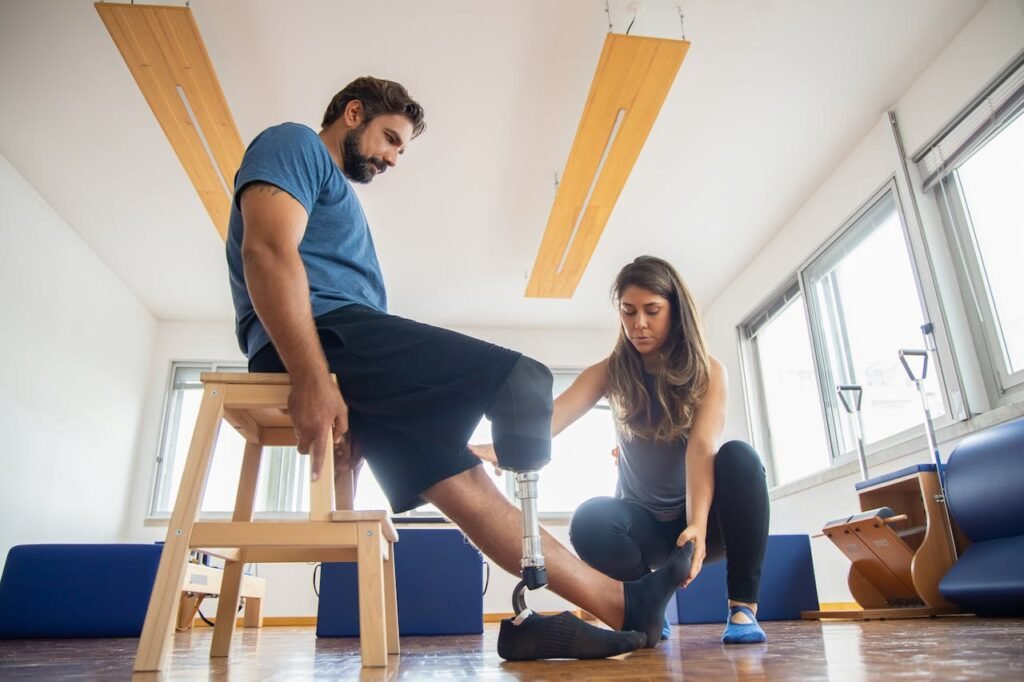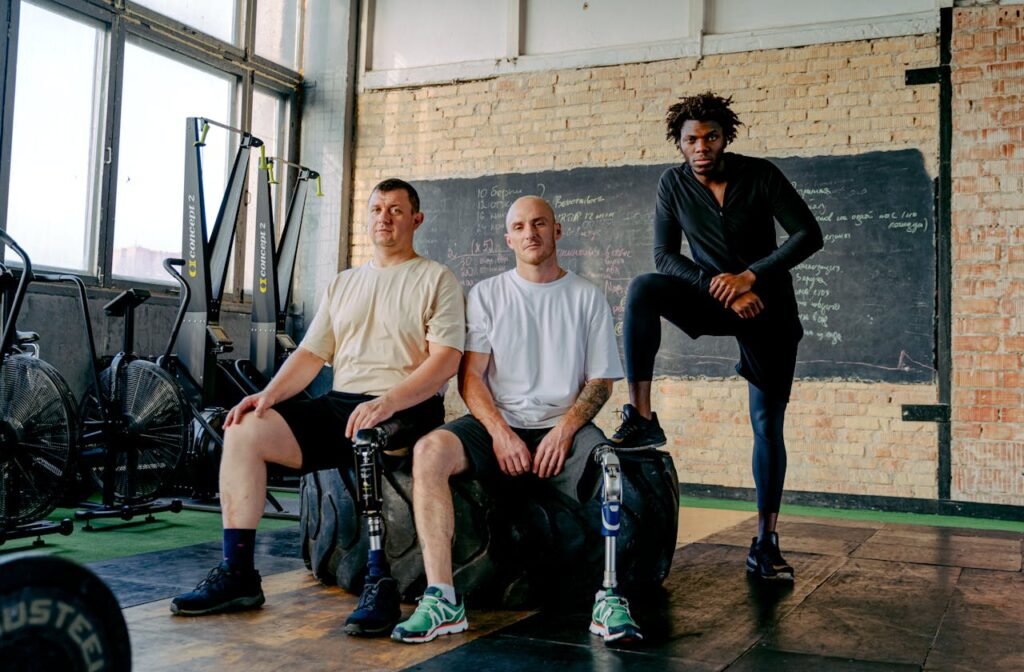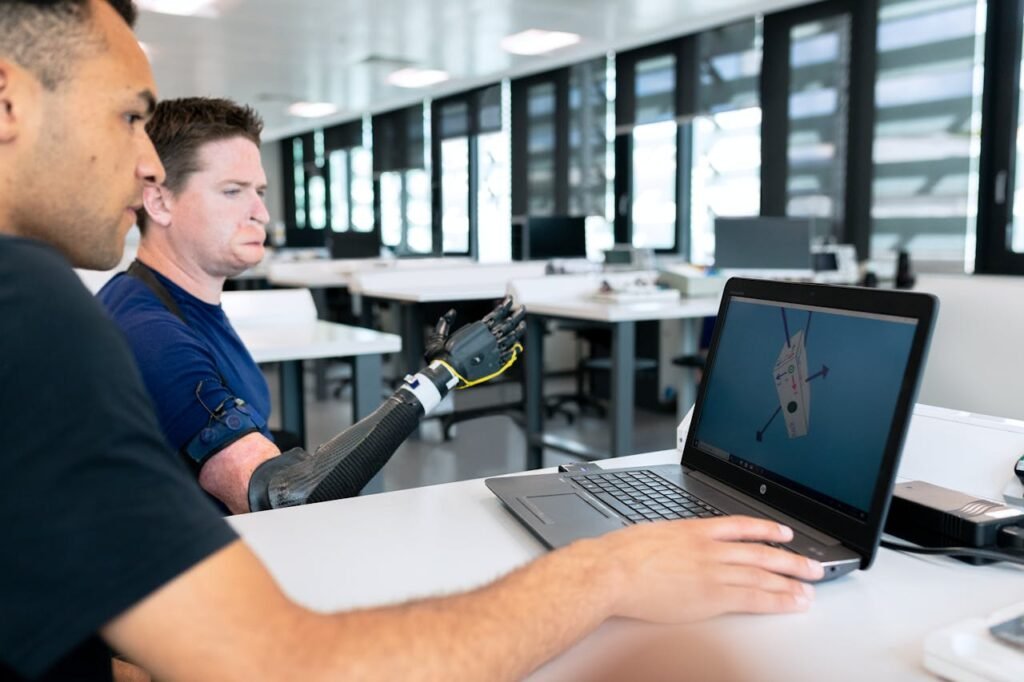In today’s fast-paced world, emotional well-being is more important than ever. Whether we face personal challenges, professional pressures, or health issues, our emotional resilience often determines how effectively we navigate life’s ups and downs. At the heart of maintaining emotional health lies one powerful factor: community.
Community, in its many forms, provides a sense of belonging, understanding, and support that no individual can fully achieve alone. It helps us cope with stress, celebrate our achievements, and find meaning in our struggles. This article explores how a strong sense of community contributes to emotional well-being and offers actionable insights for individuals and organizations alike to foster supportive environments.
Understanding the Connection Between Community and Emotional Well-Being
Emotional well-being is deeply influenced by our interactions with others. Humans are social beings by nature, and our emotional health thrives when we feel connected, supported, and valued. A sense of community fosters these connections, providing a foundation for mental and emotional stability.
A Source of Belonging
Belonging to a community satisfies one of our most fundamental emotional needs. When we feel included in a group, whether it’s our family, friends, workplace, or a shared-interest community, we experience a sense of acceptance and validation.
This sense of belonging acts as a buffer against feelings of isolation and loneliness, which can have a detrimental impact on our mental health.
For example, individuals recovering from a major life change, such as the loss of a loved one or a disability, often find solace in support groups where they connect with others who share similar experiences. These connections remind us that we are not alone in our challenges and that others genuinely understand and care.
Building Emotional Resilience
A supportive community provides the tools and encouragement needed to navigate life’s adversities. Through shared experiences and collective problem-solving, communities equip individuals with coping mechanisms that foster resilience.
For instance, a person struggling with unemployment might benefit from joining a professional network or community that offers job-seeking advice, emotional encouragement, and practical resources.
This sense of shared purpose and collective effort strengthens emotional resilience and reduces the feelings of helplessness that often accompany such challenges.
Businesses and organizations can also play a role in building resilience within their teams by fostering workplace communities where employees feel valued and supported. This not only improves emotional well-being but also enhances productivity and morale.

How Community Promotes Mental Health
The mental health benefits of community extend beyond emotional support. A strong network provides practical, social, and psychological advantages that contribute to overall mental well-being.
Reducing Stress Through Connection
Social connections help mitigate stress by offering emotional outlets and distraction from life’s pressures. Engaging with a community allows individuals to share their concerns, receive constructive feedback, and gain new perspectives.
For example, participating in recreational activities with a community group—such as a sports team, book club, or art class—provides a break from daily stressors and fosters a sense of joy and accomplishment. These activities not only strengthen social bonds but also release endorphins, the body’s natural stress relievers.
Organizations can encourage stress reduction by creating opportunities for team-building activities or wellness programs that bring employees together in a supportive environment.
Fostering Accountability and Encouragement
Communities play a vital role in motivating individuals to achieve personal and collective goals. Whether it’s maintaining a healthy lifestyle, pursuing education, or overcoming addiction, being part of a community creates a sense of accountability that fosters positive change.
For instance, fitness communities often encourage members to set and achieve health goals through mutual support and shared progress. Knowing that others are cheering you on and celebrating your milestones creates a sense of motivation and purpose.
Similarly, advocacy groups working toward social or environmental causes unite individuals with shared values, inspiring collective action and providing a sense of fulfillment.
Strengthening Emotional Well-Being Through Shared Experiences
One of the most profound aspects of a community is its ability to bring people together through shared experiences. These shared moments create bonds that transcend individual struggles and cultivate a sense of unity and empathy.
The Power of Empathy
Empathy is the cornerstone of meaningful connections within a community. When individuals feel understood and supported by others who genuinely care, their emotional well-being improves significantly. Communities built on empathy provide a safe space for members to express themselves without fear of judgment.
Consider a parent navigating the challenges of raising a child with special needs. Joining a support group of parents with similar experiences can be transformative. In these settings, members not only share practical advice but also validate each other’s emotions, fostering a sense of camaraderie and understanding.
Organizations and businesses can harness the power of empathy by creating inclusive spaces where individuals feel heard and valued. For example, customer service teams trained in empathetic communication can provide more meaningful interactions, strengthening trust and loyalty among clients.
Celebrating Achievements Together
Communities provide a platform for celebrating successes, no matter how big or small. Recognizing individual or collective achievements reinforces a sense of belonging and motivates members to continue striving for their goals.
In professional settings, workplace communities that celebrate milestones—whether it’s completing a project, achieving a sales target, or earning recognition—boost morale and foster a positive culture.
Similarly, in personal communities, celebrating life events such as birthdays, graduations, or anniversaries strengthens bonds and creates lasting memories.
Businesses can incorporate this sense of celebration into their cultures by implementing recognition programs or hosting team events that honor accomplishments. This approach not only enhances emotional well-being but also builds stronger, more cohesive teams.

Building a Sense of Purpose
Community provides more than just emotional support—it instills a sense of purpose and direction in its members. Feeling connected to a larger mission or cause empowers individuals to contribute meaningfully, enriching their lives and those of others.
Giving Back to the Community
Giving back is a powerful way to enhance emotional well-being. Volunteering, mentoring, or participating in community service activities allows individuals to feel a sense of fulfillment while positively impacting others.
For example, a person who has overcome a significant challenge, such as recovering from an injury, might volunteer to mentor others going through similar experiences. This act of giving creates a cycle of support that benefits both the mentor and mentee.
Businesses can encourage their employees to engage in community service by organizing volunteer days or partnering with local nonprofit organizations. These initiatives not only strengthen ties with the community but also enhance employee satisfaction and emotional health.
Finding Meaning in Shared Goals
Communities united by shared goals—whether it’s advocating for a cause, participating in a hobby, or pursuing professional development—foster a sense of purpose that enhances emotional well-being.
For instance, a local gardening club might bring together individuals passionate about sustainable living. Through collaborative efforts, members not only improve their community’s environment but also find joy and meaning in their shared mission.
Organizations can replicate this sense of purpose within their teams by aligning business goals with values that resonate with employees. For example, sustainability-focused companies can engage their workforce in eco-friendly initiatives, fostering a sense of pride and fulfillment.
Overcoming Loneliness and Isolation
One of the most significant benefits of being part of a community is its ability to counter loneliness and isolation. In an increasingly digital world, where meaningful interactions can sometimes feel scarce, communities provide a haven for genuine connection and support.
Building Strong Social Bonds
Loneliness can have a profound impact on emotional well-being, leading to feelings of disconnection and even contributing to mental health challenges such as depression and anxiety. Communities serve as a bridge to human connection, offering a space where individuals can forge deep and meaningful relationships.
For example, individuals who relocate to a new city often find themselves grappling with loneliness. Joining a local community group—whether it’s centered around sports, arts, or volunteering—can help them integrate into their new environment and build a network of support.
Organizations can foster this sense of connection by creating workplace communities, such as employee resource groups or mentorship programs, that encourage collaboration and camaraderie. These initiatives not only improve employee well-being but also strengthen organizational culture.
Providing Support During Challenging Times
During periods of personal or professional difficulty, communities offer a lifeline of support and encouragement. Whether it’s coping with grief, managing stress, or navigating life transitions, knowing that others are there to listen and provide guidance can make a world of difference.
Consider an individual recovering from a medical condition or injury. Participating in a community of others who have faced similar challenges provides an invaluable source of motivation, advice, and emotional reassurance. The shared experience of overcoming adversity creates a bond that fosters resilience and hope.
For businesses, cultivating a culture of support—where employees feel comfortable sharing challenges and seeking help—enhances overall well-being and productivity.
Managers who actively check in with their teams and provide resources for stress management or mental health support contribute to a more compassionate workplace.

Creating Inclusive Communities
For communities to truly enhance emotional well-being, they must be inclusive and welcoming to individuals from all walks of life. Inclusivity fosters a sense of safety and belonging, ensuring that everyone feels valued and respected.
Embracing Diversity
Inclusive communities celebrate diversity, recognizing that each member’s unique experiences and perspectives enrich the group as a whole. By fostering an environment where differences are respected and embraced, communities create a space where individuals feel free to express themselves authentically.
For example, a neighborhood association that actively includes members of different cultural backgrounds might organize events celebrating various traditions and cuisines. These gatherings not only strengthen community bonds but also promote understanding and appreciation among members.
Businesses can mirror this inclusivity by adopting diversity and inclusion strategies that prioritize equitable opportunities for employees of all abilities, backgrounds, and identities. Creating training programs or workshops on cultural competency can further reinforce these values.
Ensuring Accessibility
Accessibility is a cornerstone of inclusivity, ensuring that everyone has equal opportunities to participate in community activities. Whether it’s providing wheelchair ramps at meeting venues, offering sign language interpretation, or using inclusive language, these efforts demonstrate a commitment to equity.
For instance, an online book club that offers audio and text versions of its materials ensures that members with visual or reading disabilities can fully engage. Similarly, virtual events with captioning options make discussions accessible to those with hearing impairments.
Organizations and businesses that prioritize accessibility in their operations demonstrate a genuine commitment to inclusivity. Partnering with advocacy groups or conducting accessibility audits are proactive steps toward creating environments that welcome all individuals.
Strengthening Community Through Shared Activities
Engaging in shared activities is one of the most effective ways to strengthen a sense of community. These activities create opportunities for members to bond, collaborate, and contribute to common goals, fostering a spirit of unity and mutual respect.
Participating in Collaborative Projects
Communities thrive when their members work together on projects that benefit the group or the wider society. Collaborative efforts not only build connections but also provide a sense of accomplishment and purpose.
For example, a neighborhood cleanup initiative brings together residents to improve their surroundings. Beyond the physical transformation of the space, participants form new relationships and take pride in their collective effort. The act of working toward a shared goal reinforces the value of the community and encourages ongoing collaboration.
Businesses can harness this collaborative spirit by organizing team-building exercises or community outreach programs. Activities such as group volunteering or brainstorming sessions to solve workplace challenges enhance both professional relationships and organizational culture.
Engaging in Recreational Pursuits
Recreational activities—such as sports, arts, or fitness programs—offer a fun and informal way to strengthen community bonds. These activities provide a break from routine and allow members to connect on a personal level, fostering a sense of camaraderie.
For instance, a local running club might bring together individuals of varying fitness levels who encourage each other to reach their goals. Similarly, a community theater group might unite participants through the shared joy of storytelling and performance.
Organizations can incorporate recreational activities into their workplace culture to foster stronger team connections. Hosting wellness challenges, art workshops, or sports leagues encourages employees to engage with one another in meaningful ways, enhancing their emotional well-being.

The Role of Technology in Building Modern Communities
In the digital age, technology has revolutionized the way communities form and interact. Online platforms provide a space for individuals to connect, share resources, and support one another, regardless of geographical boundaries.
Expanding Access Through Online Communities
For individuals who may face barriers to participating in physical communities—such as mobility challenges or remote locations—online communities offer an invaluable alternative. These virtual spaces bring together people with shared interests, creating a sense of belonging even from a distance.
For example, social media groups focused on mental health advocacy allow members to exchange tips, share personal stories, and find encouragement. Similarly, forums for professionals in niche industries provide a platform for networking and skill-sharing.
Businesses can leverage online communities to foster engagement among their employees or customers. Internal communication platforms, such as Slack channels or virtual town halls, create opportunities for collaboration and connection within the workplace.
Fostering Inclusivity in Digital Spaces
While online communities offer many benefits, ensuring their inclusivity is critical to their success. Moderation, accessibility features, and respectful communication guidelines contribute to creating a safe and welcoming environment for all members.
For instance, an online support group might include features such as closed captions for video sessions or alternative text for images to accommodate members with disabilities. Encouraging respectful dialogue and swiftly addressing conflicts also reinforces the sense of safety and belonging within the community.
Organizations that adopt these best practices in their digital interactions demonstrate their commitment to inclusivity and accessibility, strengthening trust and loyalty among stakeholders.
The Long-Term Impact of Community on Emotional Well-Being
The benefits of being part of a supportive community extend far beyond the immediate emotional boost it provides. Over time, these connections contribute to personal growth, resilience, and a deeper sense of purpose. For individuals and organizations alike, investing in community-building efforts yields significant long-term rewards.
Building Lifelong Support Systems
Communities often evolve into lifelong support systems, providing stability and reassurance through life’s inevitable ups and downs. These networks of trusted relationships can act as a safety net, offering guidance, encouragement, and assistance when needed most.
For example, someone who forms friendships through a community group during a difficult period may continue to rely on those connections for advice and companionship long after the initial challenge has passed. This continuity of support strengthens emotional resilience and fosters a sense of security.
Businesses can cultivate similar long-term connections by maintaining alumni networks or encouraging ongoing engagement through mentorship programs. Employees who feel a lasting sense of belonging are more likely to remain loyal and advocate for the organization, even after moving on to new roles.

Encouraging Personal Growth and Development
Communities provide opportunities for personal growth by exposing individuals to new perspectives, skills, and experiences. Through interactions with diverse members, individuals can challenge their assumptions, broaden their horizons, and develop greater empathy and understanding.
For instance, participating in a multicultural community event might inspire someone to learn a new language or explore a different culture. Similarly, joining a professional network might lead to acquiring new skills or taking on leadership roles within the group.
Organizations can nurture personal growth by creating opportunities for employees to learn and contribute outside their immediate job roles. Offering cross-functional projects, encouraging participation in company-wide initiatives, or supporting continuous education are effective ways to foster development within a professional community.
The Role of Leadership in Fostering Community
Leaders play a crucial role in shaping the culture and dynamics of a community. Whether in a neighborhood, organization, or virtual space, effective leadership can inspire trust, encourage participation, and ensure inclusivity.
Leading with Empathy
Empathetic leaders understand the unique needs and experiences of their community members, creating an environment where everyone feels valued and heard. By demonstrating genuine care and concern, leaders build trust and loyalty among their members.
For example, a community leader who regularly checks in with members, acknowledges their contributions, and offers support during challenging times fosters a stronger sense of belonging. Similarly, workplace managers who prioritize employee well-being and advocate for their teams enhance morale and engagement.
Businesses can cultivate empathetic leadership by offering training programs that teach communication skills, emotional intelligence, and inclusive practices. Empowering leaders to model empathy sets a positive example for the entire organization.
Encouraging Collaboration and Participation
Strong leaders recognize that communities thrive when everyone has a voice and a role to play. Encouraging collaboration and active participation ensures that all members feel invested in the group’s success.
For instance, a neighborhood association that invites residents to contribute ideas for local improvement projects fosters a sense of shared ownership. Similarly, a workplace team that collaborates on decision-making builds trust and mutual respect among its members.
Leaders can create opportunities for participation by organizing regular meetings, seeking feedback, and celebrating contributions. Transparent communication and an inclusive approach to decision-making reinforce the community’s strength and cohesion.

Conclusion
Community is more than just a collection of individuals—it’s a source of strength, purpose, and emotional well-being. Whether through shared experiences, mutual support, or collective growth, being part of a community enriches our lives in profound ways.
For individuals, finding or building a supportive community can provide the encouragement and stability needed to navigate life’s challenges and celebrate its joys. For businesses, fostering a sense of community among employees and stakeholders creates a culture of inclusion, collaboration, and shared success.
As we continue to face an ever-changing world, the importance of community in sustaining emotional well-being cannot be overstated. By investing in relationships, embracing diversity, and prioritizing connection, we can build stronger, more compassionate communities that uplift and empower everyone involved.



